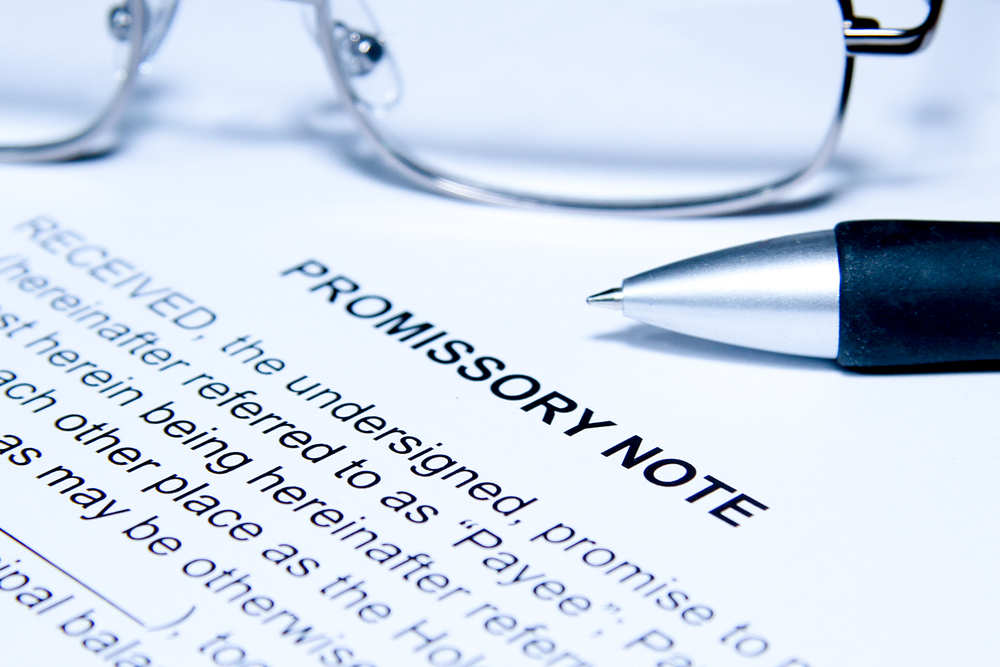A
promissory note denotes a financial instrument that comprises a written promise by a party (the issuer) to pay another party (the payee) a definite amount, either on demand or at a specific future date. These notes underlie numerous loans, including mortgages for new factories or offices and business loans for purchasing equipment.
A business could even use this instrument to prevent misunderstandings if it issues a loan to a worker. While these notes can differ depending on a state's laws or specified loan terms, they typically comprise the following elements.
Lender and Borrower Information
A promissory note must clearly identify the lender and borrower with addresses and names. At times, it will also comprise federal identifying numbers, for instance, Social Security or employer ID numbers. A business representative also signs the note on behalf of the business that's obtaining the loan, formalizing its promise to pay.
Payments and Loan Amounts
The core of numerous promissory notes is the description of the loan's terms. It lists the loan amount, the date the loan was made, and the repayment date. The note typically describes the precise payment terms and the interest rate of the loan.
Security Agreement
Some notes also feature a security agreement. When a note is unsecured, the maker promises to pay the lender and if this doesn't happen, the lender can take legal action or otherwise try to collect the balance. A secured note has collateral attached to it.
This financial instrument plays a vital role. However, you must fulfill your obligation otherwise; you could potentially lose an item that you've used as security.







